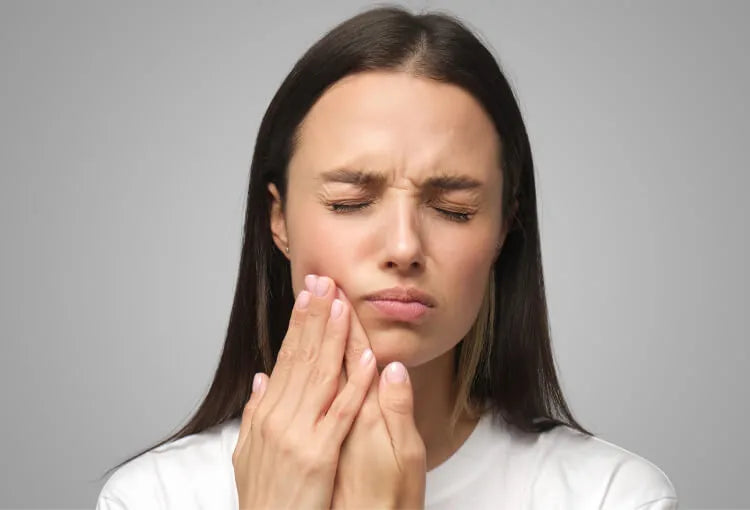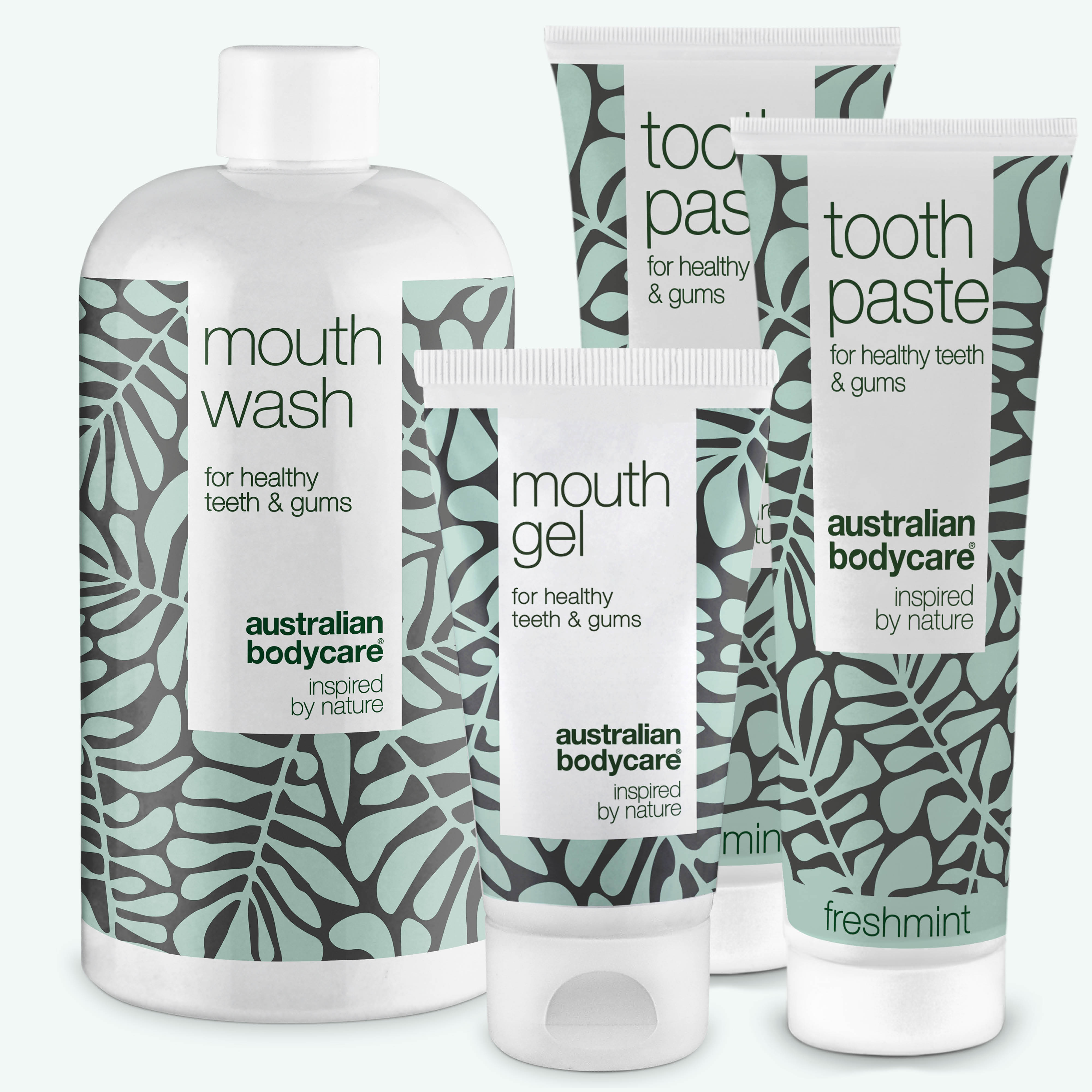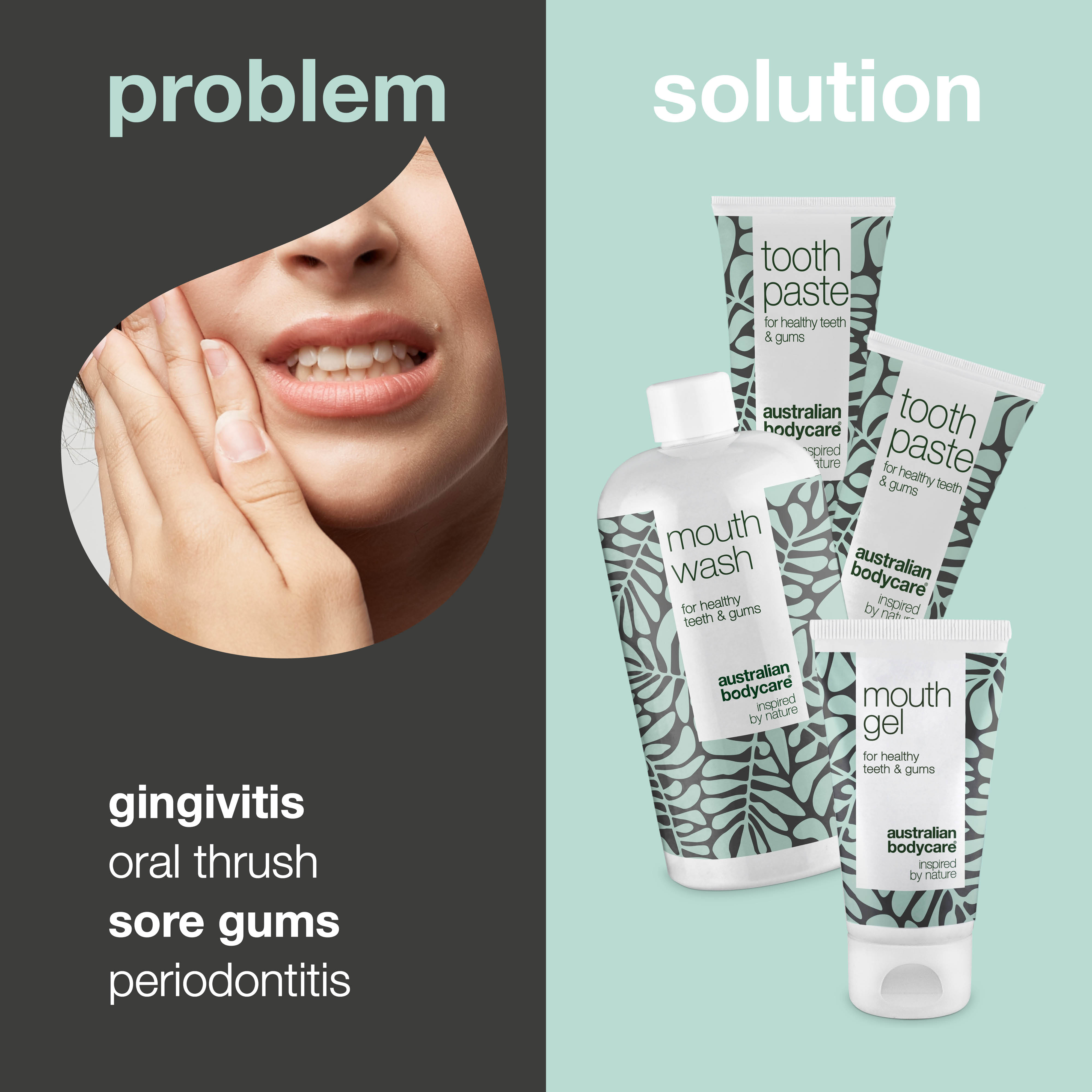Jaw Pain - How to Treat Jaw Pain
Jaw pain can make daily life difficult. It can stem from various causes such as dental issues, stress, or injuries. If you have persistent discomfort in your jaw, it's important to seek professional help from a dentist to get the correct diagnosis and treatment plan. This can prevent serious health problems.
Learn more here.
Table of contents
Causes of Jaw Pain
Dental problems like cavities and wisdom teeth, stress, and injuries or trauma can cause uncomfortable jaw pain. Bacteria in the jaw area and poor bite function can also be contributing factors.

Dental Problems
Dental problems can be a cause of jaw pain. Cold, flu, and both sinus and jaw infections often create pain. Osteoarthritis, the eruption of wisdom teeth, and teeth grinding also contribute.
Gum inflammation leads to bad breath and bleeding during brushing, which can further irritate the jaw.
Good oral hygiene and regular dentist visits prevent periodontitis. Avoid smoking to reduce the risk of dental problems. Wisdom teeth that erupt may require treatment to relieve jaw pain.
Stress
Stress can be a significant factor for those experiencing jaw pain. The body's reaction to stress often leads to unconsciously tightening the muscles around the jaw. This creates extra strain on the jaw joint and can worsen the pain.
It's important to find ways to manage stress to reduce this strain. Simple techniques like deep breathing or mindfulness can help lower stress levels and thus reduce jaw pain.
Many overlook the connection between stress and physical pain in the jaw area. However, research shows there is a clear link. By directly addressing stress, one can not only improve mental health but also reduce physical symptoms like jaw pain.
Practicing regular relaxation exercises or engaging in activities that bring joy can be effective methods for managing stress and its physical consequences.
Injuries or Trauma
Blows to the jaw can lead to pain and problems with proper mouth movement. This can also cause sounds like clicking and popping when opening and closing the mouth. Such injuries often require attention from a professional to ensure the jaw heals correctly and regains its normal function.
A direct injury to the jaw or a blow can result in the displacement of the jaw joint. This leads to reduced mobility and discomfort during mouth movements. Prompt and appropriate treatment is crucial to minimize the risk of long-term effects and ensure an effective healing process.
Treatment Options for Jaw Pain
Osteopathy and physiotherapy can relieve jaw pain by improving jaw function. Pain relievers can also reduce discomfort. Mouthguards and bite guards help alleviate tension and protect teeth from damage.
Osteopathy
Osteopathy focuses on restoring the body's balance and mobility, including the jaw. Treatment can relieve pain and improve jaw joint function through gentle manipulations, stretching exercises, and relaxation techniques.
It can be an effective supplement to other treatments like dental care and medical treatment for jaw pain.
Osteopathy has proven effective in relieving jaw pain and improving jaw function. By focusing on the body's natural healing process, osteopathic treatment can be a valuable approach to tackling jaw pain, especially when combined with other relevant treatments like physiotherapy and mouthguards.
Physiotherapy
Physiotherapy can relieve jaw pain and improve mobility. The physiotherapist performs various techniques and exercises to strengthen the jaw muscles. This can be effective in the displacement of the jaw joint and overuse, and it can help reduce pain and improve jaw function over time.
Regular physiotherapy treatments can be an integral part of a comprehensive treatment plan for jaw pain, as consultations with a physiotherapist can help identify and treat underlying causes of pain.
Physiotherapy is an important part of treatment options for jaw pain, especially when it comes to strengthening the muscles in the jaw and restoring its normal function. It can have significant benefits for patients with jaw pain caused by various factors like stress, injuries, trauma, and dental problems.
Pain Relievers
Pain relievers can be an effective treatment for jaw pain. They can help reduce pain, swelling, and inflammation in the jaw area. Medications like ibuprofen and paracetamol are common choices as they help relieve pain and make it more comfortable to chew and talk.
These medications should be taken according to the doctor's recommendations to achieve the best effect and avoid potential side effects.
Steroid injections can also be prescribed to reduce inflammation and pain directly in the jaw joint. This form of medication can provide relief in cases of acute pain and help restore normal function in the jaw.
Mouthguards and Bite Guards
Mouthguards and bite guards are custom-made devices that can be crucial for relieving jaw pain caused by teeth grinding. These guards work by placing the jaw in a more relaxed position to reduce tension and wear on the teeth.
Mouthguards and bite guards can also help treat teeth clenching, which can lead to headaches and jaw soreness. It is important to get a custom-fitted bite guard as this can help alleviate discomfort and prevent further damage to teeth and jaw.
Mouthguards and bite guards are essential tools for treating jaw pain, especially for those suffering from teeth grinding. These devices can provide relief and prevent further damage, so it is important to seek professional help from a dentist or an oral surgeon to get a tailored solution that fits your needs.
Prevention of Jaw Pain
Preventing jaw pain involves avoiding harmful habits like biting nails or chewing on objects. Stress management through relaxation exercises can also help reduce jaw pain.
Avoid Harmful Habits
Harmful habits like teeth clenching, chewing gum, and biting nails can worsen jaw pain. Excessive chewing of hard foods can also damage the jaw and cause pain. Stress and poor posture should be avoided as they can significantly worsen jaw pain.
Additionally, avoiding opening the mouth too wide can help prevent the displacement of the jaw joint. Avoiding crooked bite or dental problems through regular dentist visits is crucial for avoiding jaw pain.
Stress Management
When it comes to stress management, it is important to find healthy ways to cope and reduce stress. Identifying stressors and implementing calming routines can help reduce jaw pain that can be exacerbated by stress.
Regular exercise, meditation, and breathing exercises are effective tools for reducing stress levels. Further counseling on stress management can also be useful to identify and address anxiety-related jaw pain and prevent potential teeth grinding that can contribute to jaw pain.
Good Oral Hygiene
Good oral hygiene is essential for preventing jaw pain and dental problems. Regular brushing of teeth at least twice a day and using dental floss helps remove plaque that can lead to gum inflammation and bad breath.
Additionally, it is important to visit the dentist regularly to check the condition of the teeth and prevent potential problems. Missing teeth can also negatively affect oral hygiene and result in jaw pain.
Therefore, it is important to maintain good oral hygiene to avoid these problems.
Consequences of Untreated Jaw Pain
Untreated jaw pain can have serious consequences that affect overall well-being. It can lead to reduced quality of life, functionality, and mobility, as well as cause fatigue and depression.
Additionally, it can affect the ability to chew, talk, and open the mouth normally. It is important to seek help from a dentist for pain around the jaw joint to get a correct diagnosis and treatment plan.
Moreover, one should be aware of symptoms like ear pain, jaw soreness, and difficulty opening and closing the mouth, as these signs may indicate the need for treatment.
The consequences of untreated jaw pain can also include problems such as tinnitus (ringing in the ears), dizziness, and even migraines. In some cases, pain in the jaw joint can also worsen periodontitis or contribute to the development of jaw infections.
Therefore, it is crucial not to ignore jaw pain but rather seek professional help to avoid potential complications and improve quality of life.
FAQ
What can cause jaw pain near the ear?
Pain in the jaw near the ear can be caused by several factors, such as stress, emerging wisdom teeth, or jaw infections. These conditions can lead to inflammation and discomfort.
Can stress cause jaw pain?
Yes, stress is a common cause of jaw pain. When stressed, one can unconsciously tighten the muscles in the jaw area, leading to pain.
How to treat pain caused by a wisdom tooth?
If a wisdom tooth causes jaw pain, it is important to visit a dental clinic. A dentist can assess the situation and recommend the best treatment, often involving the removal of the wisdom tooth.
Is there a connection between jaw pain and ear pain?
Yes, there can be a direct connection between jaw and ear pain, as these areas are closely linked. Sinus infections and certain dental diseases can cause both jaw and ear pain.
How can I prevent future jaw pain?
Preventing jaw pain includes reducing stress, avoiding tightening the jaw muscles, and regular visits to the dentist to keep dental diseases in check. It is also important to treat any diseases like arthritis or gout that can affect jaw functions.





